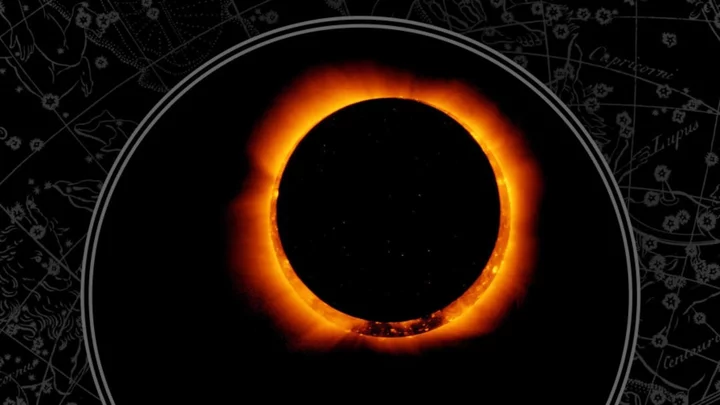
See an Annular Solar Eclipse Cast a “Ring of Fire” in October’s Sky
In October, catch this special type of solar eclipse that occurs only once every year or two.
1970-01-01 08:00

The Harvest Moon, the Final Super Moon of the Year, is Coming in Late September
The harvest moon is the full moon that falls closest to the fall equinox, and this year, it’s also a super moon.
1970-01-01 08:00
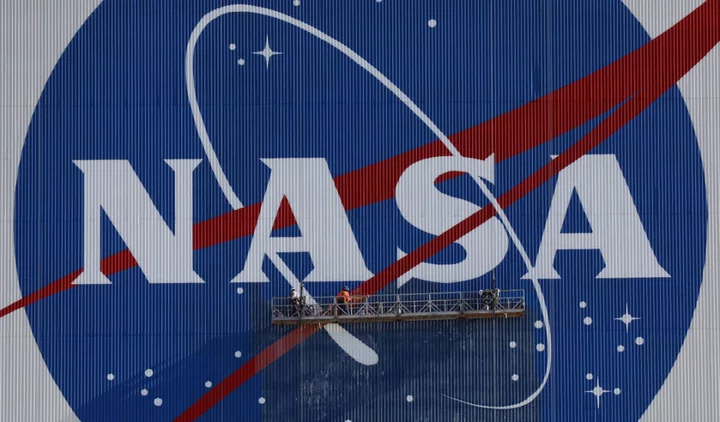
Nasa names new head of UFO research – after abuse forced space agency to try and keep them secret
Nasa has named its new head of research into unexplained phenomena spotted in the sky – after initially saying that it would not. The space agency said that its new head of research into Unidentified Anomalous Phenomena, or UAPs, would be kept secret in an attempt to keep them from being abused. Many of the publicly identified members its research panel have been subject to threats and harassment, the space agency has said. Previously, members of the panel said that abuse had kept them from properly examining the phenomena. The announcement of a new head of research came soon during the discussion of the panel’s first report into UFOs. That report said that it needed more scientific research to make firm conclusions – and less stigma and abuse of those doing it. During a panel discussion of that report, Nasa associate administrator Nicola Fox said that the space agency had appointed a new official to oversee the research and work with other federal agencies. But she told reporters that “we will not give his name out” for fear of reprisals. Later on Thursday, however, Nasa released a new blog post in which it identified the new director as Mark McInerney. “McInerney previously served as NASA’s liaison to the Department of Defense covering limited UAP activities for the agency,” it wrote. “In the director role, he will centralize communications, resources, and data analytical capabilities to establish a robust database for the evaluation of future UAP. “He also will leverage NASA’s expertise in artificial intelligence, machine learning, and space-based observation tools to support and enhance the broader government initiative on UAP.” The report did not give any indication of why the space agency had changed its mind on naming the new appointment. It only noted that it had made the decision to update it to “include details about the UAP research director”. In the 33-page report published earlier on Thursday, an independent team commissioned by NASA cautioned that the negative perception surrounding UFOs poses an obstacle to collecting data. But officials said NASA‘s involvement should help reduce the stigma around what it calls UAPs, or unidentified anomalous phenomena.“We want to shift the conversation about UAPs from sensationalism to science,” NASA Administrator Bill Nelson said. He promised an open and transparent approach. Officials stressed the panel found no evidence that UAPs had extraterrestrial origin. But Nelson acknowledged with billions of stars in billions of galaxies out there, another Earth could exist. “If you ask me, do I believe there’s life in a universe that is so vast that it’s hard for me to comprehend how big it is, my personal answer is yes,” Nelson said at a news conference. His own scientists put the likelihood of life on another Earth-like planet at “at least a trillion.” When pressed by reporters on whether the U.S. or other governments are hiding aliens or otherworldly spaceships, Nelson said: “Show me the evidence.” NASA has said it doesn’t actively search for unexplained sightings. But it operates a fleet of Earth-circling spacecraft that can help determine, for example, whether weather is behind a strange event. The 16-member panel noted that artificial intelligence and machine learning are essential for identifying rare occurrences, including UFOs. No top-secret files were accessed by the panel’s scientists, aviation and artificial intelligence experts, and retired NASA astronaut Scott Kelly, the first American to spend nearly a year in space. Instead, the group relied on unclassified data in an attempt to better understand unexplained sightings in the sky. Officials said there are so few high-quality observations that no scientific conclusions can be drawn. Most events can be attributed to planes, drones, balloons or weather conditions, said panel chairman David Spergel, president of the Simons Foundation, a scientific research group. The government refers to unexplained sightings as UAPs versus UFOs. NASA defines them as observations in the sky or elsewhere that cannot be readily identified or scientifically explained. The study was launched a year ago and cost under $100,000. Additional reporting by agencies Read More We cannot yet explain mysterious sightings in the sky, Nasa panel says Nasa boss says he believes in aliens during UFO hearings Watch as Nasa announces findings of long-awaited UFO study Nasa’s UFO study team reveals first ever report: as it happened Scientists might have seen a ‘life’ molecule on another planet SpaceX crew streak across sky before splashing down off Florida coast
1970-01-01 08:00

Nasa boss says he believes in aliens during UFO hearings
Nasa’s chief says he believes that aliens are real and waiting to be found. Bill Nelson was speaking after the publication of a report by a panel assembled to look into Unidentified Anomalous Phenomena (UAPs), the official names for UFOs, or unexplained objects spotted in the sky. That report found that while some UAPs remain unexplained, more data is found to understand where they have come from. Mr Nelson said that his “personal answer” is that there are vast numbers of inhabited planets throughout the universe. “With the James Webb [telescope] looking at the exoplanets, we are now beginning to discover, and somewhere out there we will discover, another medium-sized stony planet around a medium-sized sun or star at just the right distance... that has carbon, that will have a habitable atmosphere,” he said. “If you ask me do I believe there’s life in a universe that is so vast that it’s hard for me to comprehend how big it is, my personal answer is yes. But I asked some of our scientists: What is the mathematical probability that there is life out there in the universe? And if you calculate in billions of stars in billions of galaxies that there’s replicated in what I just said, another stony planet, the answer was ‘at least a trillion’. That’s from our scientists.” Read More Watch live: Nasa announces findings of long-awaited UFO study We cannot yet explain mysterious sightings in the sky, Nasa panel says Nasa’s UFO study team reveals first ever report: Live updates
1970-01-01 08:00
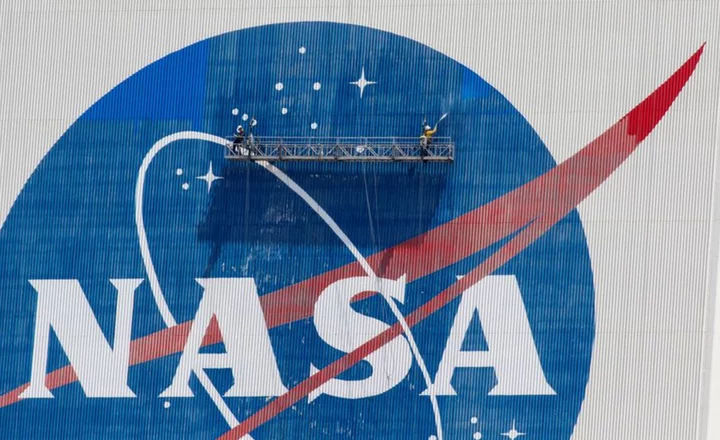
NASA panel calls for agency to play larger role in studying UFOs
By Joey Roulette WASHINGTON A NASA panel recommended in a report issued on Thursday that the U.S. space
1970-01-01 08:00
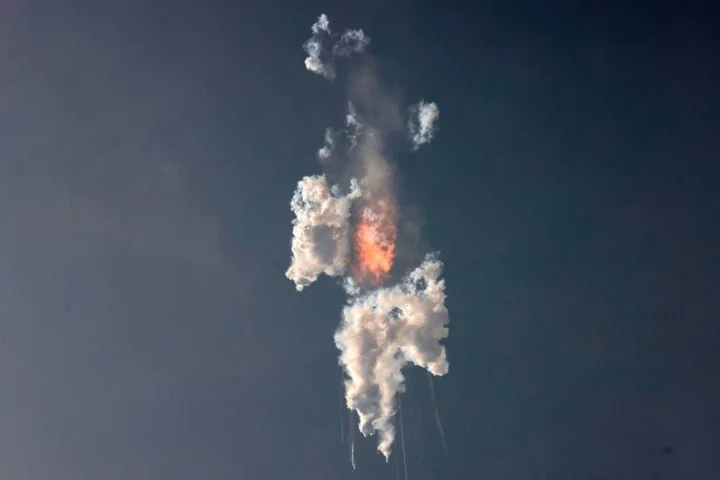
FAA could advance SpaceX Starship license as soon as October
WASHINGTON The acting head of the Federal Aviation Administration said on Wednesday the agency could advance the SpaceX
1970-01-01 08:00

'Learning period' for US commercial space regulations should be extended -US Sen. Cruz
WASHINGTON A federal moratorium on commercial spaceflight safety regulations should be extended to support more innovation in the
1970-01-01 08:00
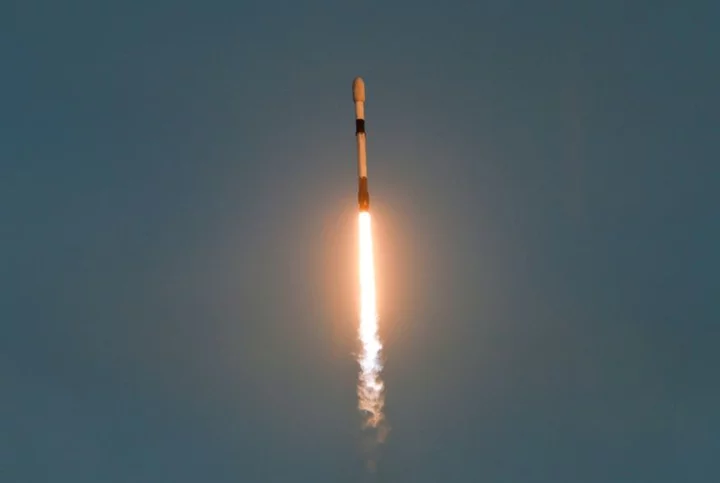
Billionaire Ron Baron owns over $1 billion stake in Musk's SpaceX - CNBC
Billionaire investor and fund manager Ron Baron said on Wednesday he owned more than $1 billion worth of
1970-01-01 08:00

Elon Musk makes prediction for imminent Starship launch
Elon Musk has revealed new details about the next major test flight for SpaceX’s Mars-bound Starship rocket, which he claims is ready to launch. SpaceX is still awaiting approval from the Federal Aviation Administration (FAA) to launch the biggest rocket ever built, with the US regulators currently undertaking a “mishap investigation” for the previous Starship launch in April. The 400-foot-tall (121 metre) rocket exploded over the Gulf of Mexico just three minutes into a planned 90 minute flight on 20 April, breaking up into pieces over the water. An inadequate launchpad was also destroyed by Starship’s huge engines, blasting concrete chunks and metal shards across a 700-acre area. The SpaceX boss had predicted that the rocket would explode, saying ahead of the attempt: “I am not saying it will get to orbit but I am guaranteeing excitement.” The tech billionaire is more hopeful for the latest launch attempt, having made several key changes to how it operates. “We are doing a new staging technique called hot staging where you light the upper stage engines while the booster stage is still firing,” Mr Musk told the All-In Podcast this week. This is the most efficient way to do stage separation of a rocket going to orbit but we did not try that on the last mission... I think, I hope, we have a well over 50 per cent chance of getting through stage separation, and maybe a close to 50 per cent chance of getting to orbit if the hot staging separation method works. “I’d say it’s above 50 per cent chance of getting to orbit this time, whereas previously I said below 50.” Once in orbit, Starship will travel around the planet before splashing down in the Pacific Ocean just north of Hawaii. The Starship rocket is currently fully stacked at SpaceX’s Starbase facility in Texas, though it is not clear how long the private space firm will have to wait before receiving FAA approval. “The SpaceX Starship mishap investigation remains open,” the FAA said in a statement last week. “The FAA will not authorise another Starship launch until SpaceX implements the corrective actions identified during the mishap investigation and demonstrates compliance with all the regulatory requirements of the licence modification process.” Read More SpaceX launch of Starship rocket on hold amid ‘mishap investigation’ SpaceX launch of Starship rocket on hold amid ‘mishap investigation’ Starship ‘ready to launch’, Elon Musk says SpaceX smashes rocket launch record as Musk eyes historic Starship mission
1970-01-01 08:00
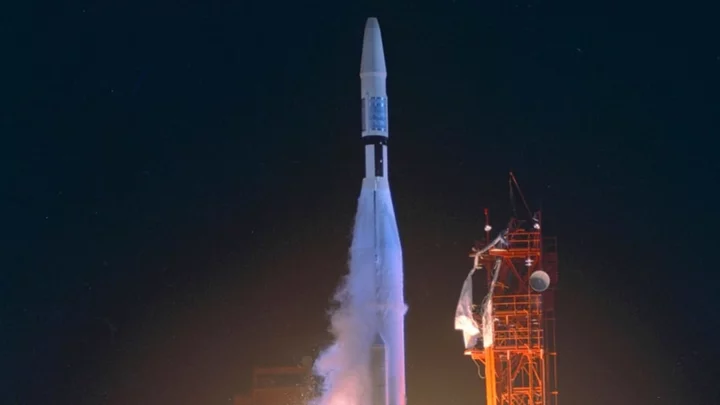
On This Day in 1962, NASA Launched and Destroyed Mariner 1
A software error coupled with a radar failure led to the loss of NASA's first Venus probe.
1970-01-01 08:00

8 Mind-Blowing Facts About the Big Bang
The birth of our universe happened at least 13 billion years ago—and you may have seen it on TV.
1970-01-01 08:00

Telesat taps SpaceX to launch its broadband satellites in orbit
By Steve Scherer OTTAWA Canada's Telesat on Monday said it has signed a agreement with SpaceX to launch
1970-01-01 08:00
